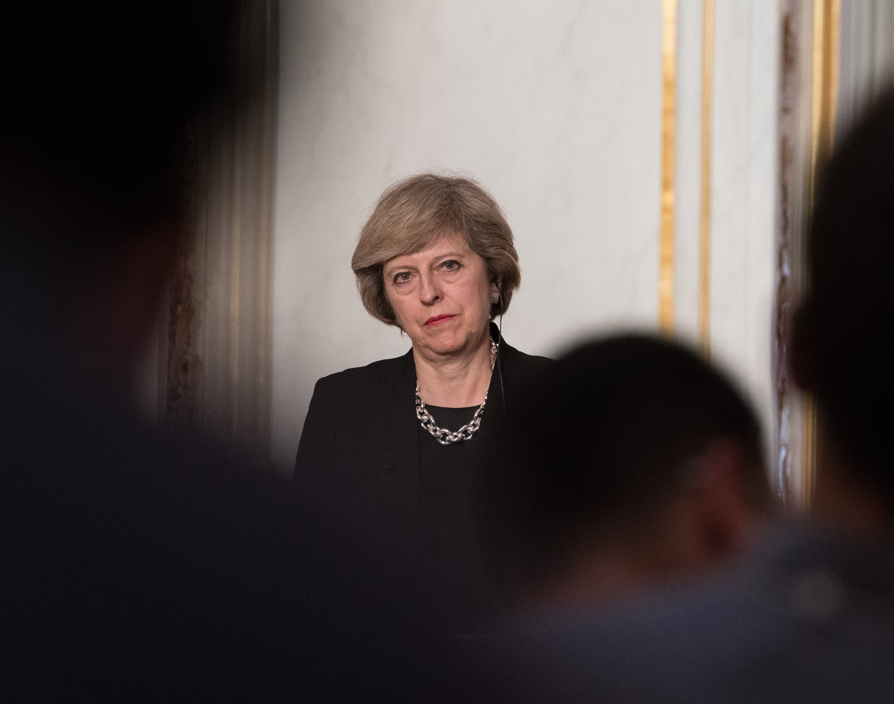Photo credit: Frederic Legrand – COMEO/Shutterstock.com
Theresa May’s relationship with tech firms is complicated. While her government has backed several initiatives to ensure British innovation remains at the cutting edge, the prime minister has often demonstrated dissatisfaction with the industry’s efforts to tackle terrorism. A long-time proponent of increased governmental oversight, she has repeatedly argued that social-media platforms should provide authorities with a back door into their platforms. And speaking today at Davos, May is expected to tell shareholders to force businesses to do more in the fight against extremism and illegal content.
Speaking at the World Economic Forum’s annual event, May will ramp up her efforts to clean up the internet. In particular, she’ll encourage companies like Facebook, Twitter and Telegram to beef up their endeavours to develop solutions that automatically remove extremist and illegal content. “These companies simply cannot stand by while their platforms are used to facilitate child abuse, modern slavery or the spreading of terrorist and extremist content,” the prime minister is expected to say.
Recognising that investors and shareholders have huge power over tech firms, May will also implore them to threaten to sell stock or refuse to invest in tech companies that fail to meet their obligations to society. “Investors can make a big difference here by ensuring trust and safety issues are being properly considered,” May will say. “And I urge them to do so.”
However, May is not alone in proposing that tech companies do more. For instance, in December the European Commission warned tech giants like Google, Facebook and Twitter to boost their efforts in the fight against terrorism or face increased regulation. Moreover, last month the Committee on Standards in Public Life criticised Facebook, Twitter and Google for not taking enough responsibility for illegal content that appears on their platforms.
Given the fact that the EU E-Commerce Directive (2000) that regulates the content on these platforms was created before Facebook was a twinkle in Mark Zuckerberg’s eyes, it makes sense that it could do with a tune up. But we’re keeping our fingers crossed that it won’t happen at the expense of tech companies’ ability to innovate. ![]()
Share via:








































